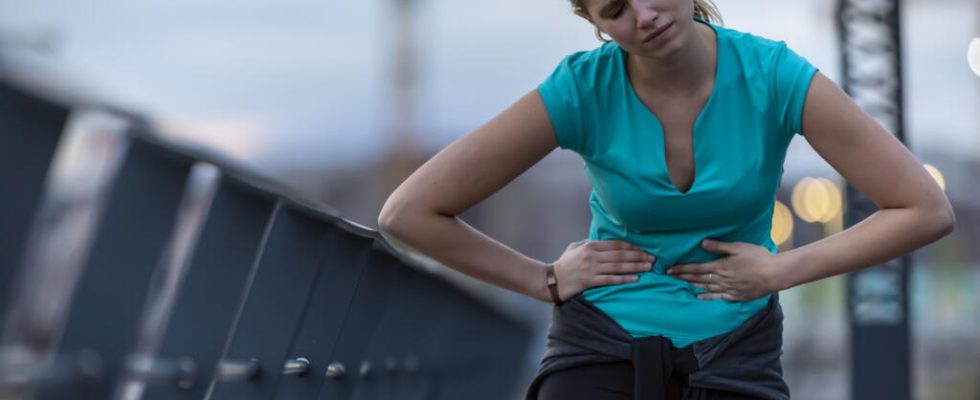Every week, Dr Jean-Marc Sène, sports doctor, presents his sports column in Priorité Santé. This week, he talks to us about gastroesophageal reflux caused by intense physical activity.
3 mins
The benefits of regular physical or sporting activity are no longer in doubt. Studies on this subject all point in the same direction and show that physically active people develop fewer physical and mental illnesses than inactive people. However, it is important to understand that sport can also lead to gastrointestinal problems, one of the most common of which is gastric reflux.
What is gastric reflux?
As a reminder, gastric reflux, also called gastroesophageal reflux (GERD) occurs when stomach acid flows back into the esophagus. Unlike the stomach, the esophagus has no protection to deal with an influx of stomach acid. When acid reflux occurs repeatedly over time, weakness begins to set in in the lower esophageal sphincter (LES).
This sphincter acts like a valve. When closed, it helps contain food, liquid and stomach acid in the stomach. However, if this sphincter malfunctions, occasional relaxations can then allow stomach acid to pass into the esophagus. Hence the uncomfortable feeling of heartburn or gastric rising from the sternum to the chest. Some people with acid reflux may also experience a lump in the throat, nausea, reflux-related cough, and various stomach upsets.
What causes gastric reflux during sport?
The most athletic among our listeners have certainly already experienced symptoms linked to gastric reflux during their sports activities: heartburn, heartburn, regurgitation, acid reflux in the throat, etc.
The more the effort is linked to intensive or long-term physical activity, the more it generates intra-abdominal pressure likely to promote the appearance of gastric reflux. Sports that require explosiveness are also affected, because taking a short, deep breath and suddenly blocking your breathing at the start of certain efforts creates strong intra-abdominal pressure. The esophagus and stomach are thus less irrigated, their motility is impaired and they no longer function optimally.
Intense or long-term physical exertion can cause a temporary lack of tone in the lower esophageal sphincter, which then promotes reflux. Consumption of spicy, fatty, acidic foods, or large quantities shortly before exercise can irritate the lining of the esophagus and promote reflux. To avoid episodes of reflux during sport, it is better to eat a balanced meal 3 hours before the session.
Which sports should and should not be recommended?
Do not hesitate to consult a doctor, especially if the problem is recurring. Implement preventive measures that concern your daily lifestyle: diet, ways of consuming, poor posture, stress, weight, etc. In general, we can advise against all sports that require intense efforts, long-term efforts or even efforts that repeatedly cause intra-abdominal pressure. The list of these sports is long. Examples include rugby, combat sports, bodybuilding (weightlifting), gymnastics, climbing, competitive cycling, rowing, etc.
Also affected are sports that require jumping up and down or bouncing: long or intense running, sprinting, aerobics, skipping rope, etc. All sports can be practiced in general, but on condition that explosive, intense or long-lasting efforts are avoided. It is therefore better to favor low to medium intensity sports practice. Do not hesitate to consult a doctor, especially if the problem is recurring. Implement preventive measures that concern your daily lifestyle: diet, ways of consuming, poor posture, stress, weight, etc.
